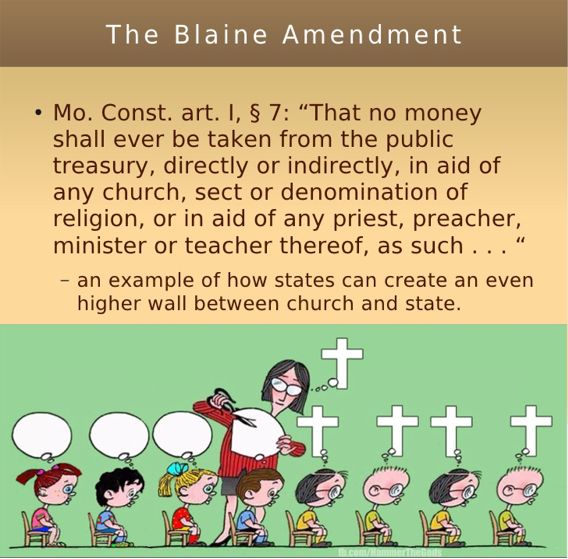Symposium: Do Blaine amendments create a public-school monopoly over moral education?
Jim Kelly is President of Solidarity Center for Law and Justice, P.C., and Founder and General Counsel of Georgia GOAL Scholarship Program, Inc., Georgia’s largest K-12 tax credit student scholarship program.
During its upcoming term, in Espinoza v. Montana Department of Revenue, the Supreme Court will decide whether it violates the religion clauses or the equal protection clause of the United States Constitution to invalidate a generally available and religiously neutral student-aid program simply because the program affords students the choice of attending religious schools. In considering the case, the court will examine whether state agencies, such as Montana’s Department of Revenue, can rely on “Blaine amendments” to deny parties direct or indirect access to public funds for use in schools operated by religious groups.
Montana’s Blaine amendment is based on an 1875 proposal by U.S. Representative James Blaine of Maine to amend the U.S. Constitution to prohibit states from using money raised by taxation, or from providing public lands, for the support of schools that are under the control of religious sects or denominations. In Espinoza, Montana officials cited the state’s Blaine amendment as the basis for denying parents seeking to educate their children in the religious schools of their choice access to a K-12 scholarship program funded by state income-tax-credit-eligible contributions to private nonprofit scholarship organizations. Because there are 37 states whose constitutions contain Blaine amendments, the question raised by Espinoza has national significance.
Most likely, during its deliberations, the court will consider the deep history evidencing the anti-Catholic animus at the root of the adoption of the Blaine amendments in the second half of the 19th century. This evidence reflects a nativist fear that providing public funds for the education of millions of children from Catholic European immigrant families would embolden the anti-democratic “Papists,” who, allegedly, would be loyal to Rome, not to liberal republican values.
Of course, supporters of the Blaine amendments made it clear that any prohibitions on the use of public funds for K-12 education conducted by “sectarian” institutions would not prevent the continued moral education of public-school children in accordance with Protestant Christian teachings that, in their view, were foundational to America’s greatness and survival. Thus, by CONTINUE READING: Symposium: Do Blaine amendments create a public-school monopoly over moral education? - SCOTUSblog

